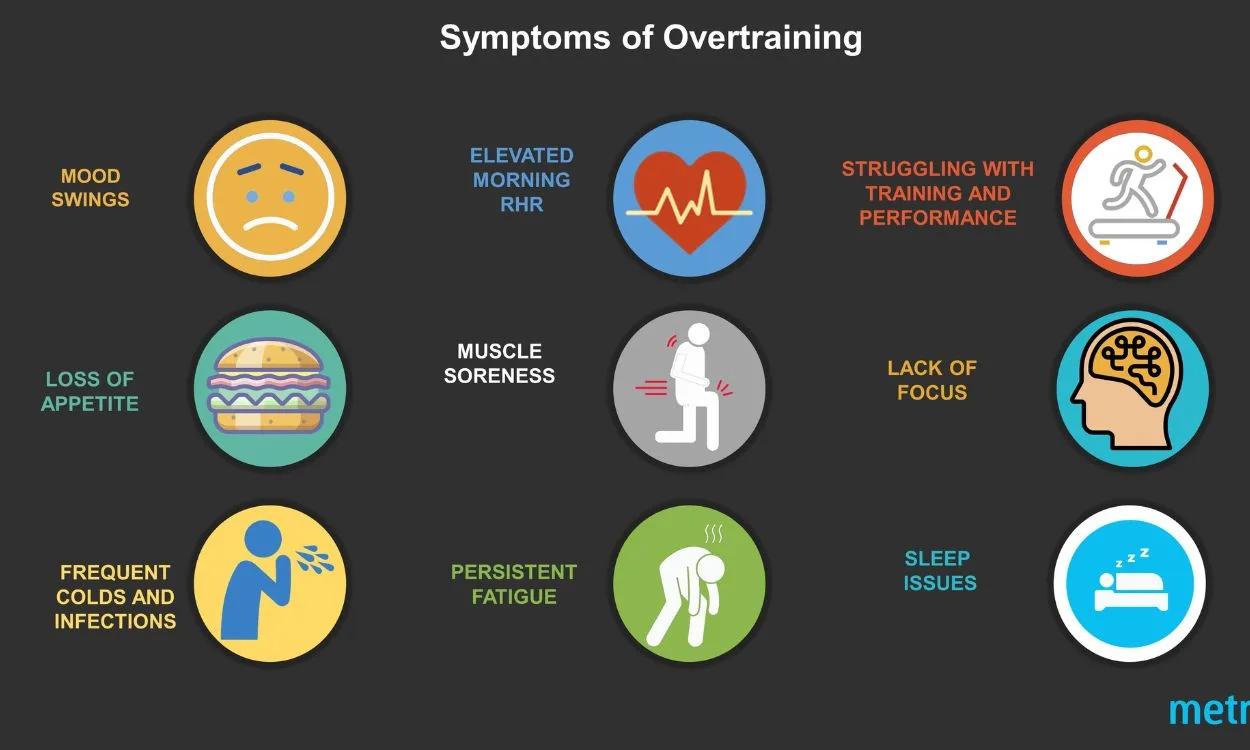Signs of Overtraining and How to Prevent It
Introduction
Have you been pushing yourself too hard in your workouts? While it’s important to stay committed and dedicated to your fitness goals, it’s equally important to listen to your body and avoid overtraining. Overtraining can lead to fatigue, injury, and a decline in performance. In this article, we will discuss the signs of overtraining and provide tips on how to prevent it.
Signs of Overtraining
- Persistent fatigue: Feeling excessively tired and drained, even after getting enough rest, is a common sign of overtraining. If you constantly feel exhausted, it could be a sign that your body needs a break.
- Decreased performance: Overtraining can lead to a decline in your athletic performance. If you notice a sudden decrease in your strength, speed, or endurance, it may be a result of overtraining.
- Increased perceived effort: If your workouts are starting to feel harder than usual, it could be a sign of overtraining. You may find it difficult to maintain your usual intensity or struggle to complete workouts that were once easy for you.
- Persistent muscle soreness: While muscle soreness is a normal part of training, persistent and prolonged muscle soreness can be a sign of overtraining. If your muscles are constantly sore and take longer to recover, it’s a signal that you may be overdoing it.
- Frequent illnesses: Overtraining weakens the immune system, making you more susceptible to illnesses such as colds, flu, and infections. If you find yourself getting sick often, it could be a sign of overtraining.
- Mood changes: Overtraining can have a negative impact on your mental well-being. You may experience mood swings, irritability, lack of motivation, and decreased enjoyment in activities that you once loved.
Prevention Tips
To prevent overtraining and ensure a healthy and balanced fitness routine, consider the following tips:
- Listen to your body: Pay attention to how your body feels during and after workouts. If you’re feeling excessively fatigued or experiencing any of the signs mentioned above, take a break and allow your body to rest and recover.
- Include rest days: Rest days are just as important as workout days. Schedule regular rest days in your training program to give your body time to recover and repair. Use these days to engage in gentle activities like stretching or light yoga.
- Diversify your workouts: Avoid doing the same exercises or workouts every day. Incorporate variety into your routine by trying different types of exercises, such as cardio, strength training, and flexibility exercises. This helps prevent overuse injuries and allows different muscle groups to recover.
- Prioritize sleep: Adequate sleep is crucial for recovery and overall well-being. Aim for 7-9 hours of quality sleep each night to allow your body to repair and rebuild.
- Fuel your body properly: Nutrition plays a key role in recovery. Ensure you’re consuming a well-balanced diet that includes an adequate amount of protein, carbohydrates, and healthy fats. Stay hydrated and consider incorporating foods rich in antioxidants to support your immune system.
- Monitor your training intensity: Keep track of your training volume and intensity. Gradually increase these factors over time to avoid sudden spikes in workload that can lead to overtraining. Pay attention to your body’s response and adjust accordingly.
Conclusion
Overtraining can hinder your progress and lead to various health issues. By recognizing the signs of overtraining and implementing preventative measures, you can maintain a balanced and sustainable fitness routine. Remember to listen to your body, prioritize rest and recovery, and make healthy choices to support your overall well-being.
If you’re interested in taking your fitness journey to the next level and receiving personalized guidance, consider downloading the Fitpaa app. With a team of dedicated fitness planners, nutritionists, and doctors, Fitpaa offers a comprehensive approach to help you achieve your health and fitness goals. Don’t let overtraining hold you back – start your journey with Fitpaa today!
Note: The Fitpaa app and services mentioned in this article are designed to provide personalized health and fitness solutions. For more information and to experience the benefits of Fitpaa, kindly refer to the Fitpaa website or download the Fitpaa app.









